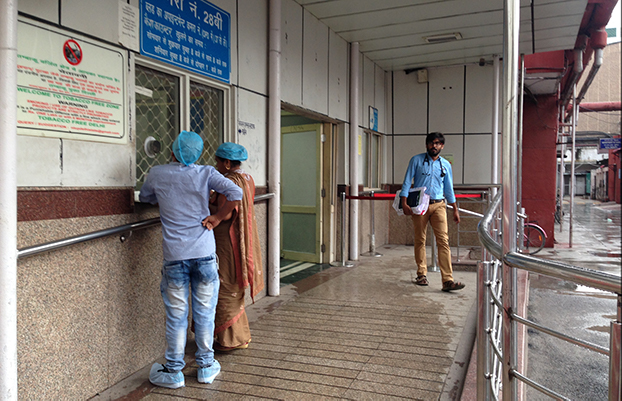India’s health ministry announced last week its plan to register and regulate all medical devices in the same way as drugs due to concerns over their safety and quality.
The government’s decision comes almost a year after the Implant Files investigation by the International Consortium of Investigative Journalists, the Indian Express and more than 50 media partners found a poorly regulated medical device industry that was hurting patients.
India’s Drugs Technical Advisory Board recommended last Spring that the government improve its system to track devices and report adverse events.
Only 23 devices out of about 5,000 are currently registered and regulated in India, one of the world’s fastest-growing markets.
Earlier, the health ministry had conceded that the lack of certification and regulation was “putting patient safety at risk,” according to meeting minutes reviewed by the Indian Express.
The Express reported that it had taken 12 years for India to enact a law regulating medical devices. Meantime, products such as stents and intrauterine devices were linked to at least 500 incidents since 2014. Having begun to register syringes and infusion sets in 1980, the country has added to the list of controlled medical products less than two dozen types of medical products including catheters, orthopedic implants and heart valves.
The recently-announced regulation will gradually apply to all device categories, including those used to diagnose, monitor and treat diseases and disabilities, as well as life-supporting and birth-control devices.

Last year, the Indian daily also found that, because of its poor tracking system, the government did not have information on more than 3,600 patients who had received faulty hip implants made by Johnson & Johnson. Four deaths were associated with those implants.
The new policy would require all manufacturers and importers to report adverse events to regulators. Those who don’t comply would face punishment under the country’s drug laws, Archana Sahadeva, an independent lawyer representing pharma companies, told the Indian Express.
Members of the public and interested parties have until November 18 to share their comments on the ministry’s draft regulations. The policy is scheduled to be implemented on December 1.







